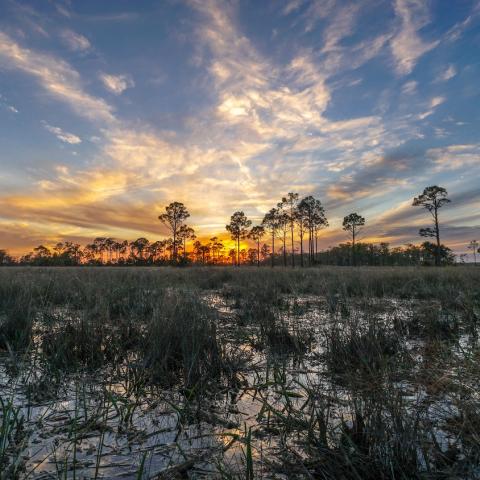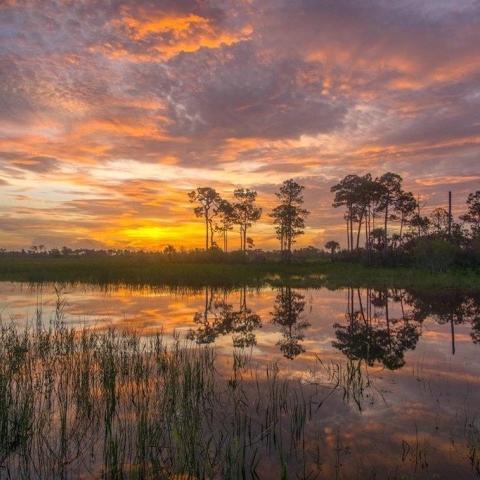A congressman from Arizona is pushing legislation that would reduce National Park Service oversight of oil and gas drilling in units of the National Park System where it is allowed, according to a parks advocacy group.
According to the National Parks Conservation Association, Rep. Paul Gosar on Monday evening introduced H.J. Res. 46, which seeks to repeal updates to the National Park Service’s “9B” rules. The rules require detailed planning and set safety standards for oil and gas drilling inside the more than 40 national parks that have “split estate” ownership, where the federal government owns the surface but not the subsurface mineral rights.
The resolution is just the latest in a serious of moves by federal lawmakers to weaken environmental protections for national parks under the Congressional Review Act (CRA), NPCA said in a release. If these repeals are signed into law under the CRA, it will not only stop these protections, it will also prohibit agencies from issuing similar rules and protections in the future, unless directed by Congress, the park advocacy group added.
“These challenges are direct attacks on America’s national parks. Each of these rules provides the commonsense protections for national parks that millions of Americans demand," said Nick Lund, NPCA's senior manager of conservation programs. "If the Park Service’s drilling rules are repealed, national parks across the country would be subjected to poorly regulated oil and gas drilling, threatening parks’ air, water, and wildlife. These attempts to weaken protections put our parks at risk. And by using the Congressional Review Act process, Congress is forever tying the hands of the agencies charged with protecting America’s favorite places. If Congress wants to protect national parks for future generations, it must reject these challenges.”
The House is set to vote Friday to repeal rules to prevent the waste of methane gas from oil and gas facilities. CRA challenges were also introduced Monday in the House and Senate to repeal U.S. Bureau of Land Management “Planning 2.0” rules, which seek to guide an appropriate balance of energy development, conservation and recreation on public lands by better utilizing environmental science.
There are more than 40 national parks where the federal government does not own the mineral rights below the surface, including Cuyahoga Valley National Park in Ohio, Theodore Roosevelt National Park in North Dakota, and Mesa Verde National Park in Colorado.
The 9B rules are updates to rules established in 1978 setting reasonable safeguards for national parks from private oil and gas development. The rules simply require an operator to produce a Plan of Operations before accessing their mineral rights, give the National Park Service the authority to conduct safety enforcement, and provide standard technical requirements for the safeguarding of national park air, water, and wildlife.
If Congress repeals these rules, drilling could occur in national parks with little more than bare-minimum state regulations, NPCA maintained. The Park Service will have essentially no authority over oil and gas development proposed inside national parks. Leaks and spills could go unpunished without Park Service authority to enforce safety standards. Companies would be able to build roads through national parks to begin drilling, such as the 11-mile road through the heart of Big Cypress National Preserve built to reach an oil and gas lease. Drilling companies would not be required to inform parks or park visitors about when or how drilling operations would occur.




 Support Essential Coverage of Essential Places
Support Essential Coverage of Essential Places







Comments
National Parks are for the present and future public and the wildlife.
Not to be ruined by greed
Disasterous.
This is from Utah's Deseret News this morning: http://www.deseretnews.com/article/865688003/Feds-to-allow-oil-gas-drill...
It's interesting to note that even Utah's Republican governor is expressing concern over this:
"SALT LAKE CITY -- Federal land managers said Friday they will allow drilling for publicly owned oil and gas near Dinosaur National Monument in northeastern Utah despite concerns about disrupting the area.
The Bureau of Land Management announced plans to offer drilling rights on about 145 square miles in a December online auction.
The agency cited President Donald Trump's goal of increasing domestic energy production.
In a news release, officials said energy companies would be required to take steps to protect air and water quality.
Utah Republican Gov. Gary Herbert had expressed concerns in July about potential drilling in the area, saying it could be disruptive for visitors to Dinosaur Monument, a 330-square mile expanse in Utah and Colorado.